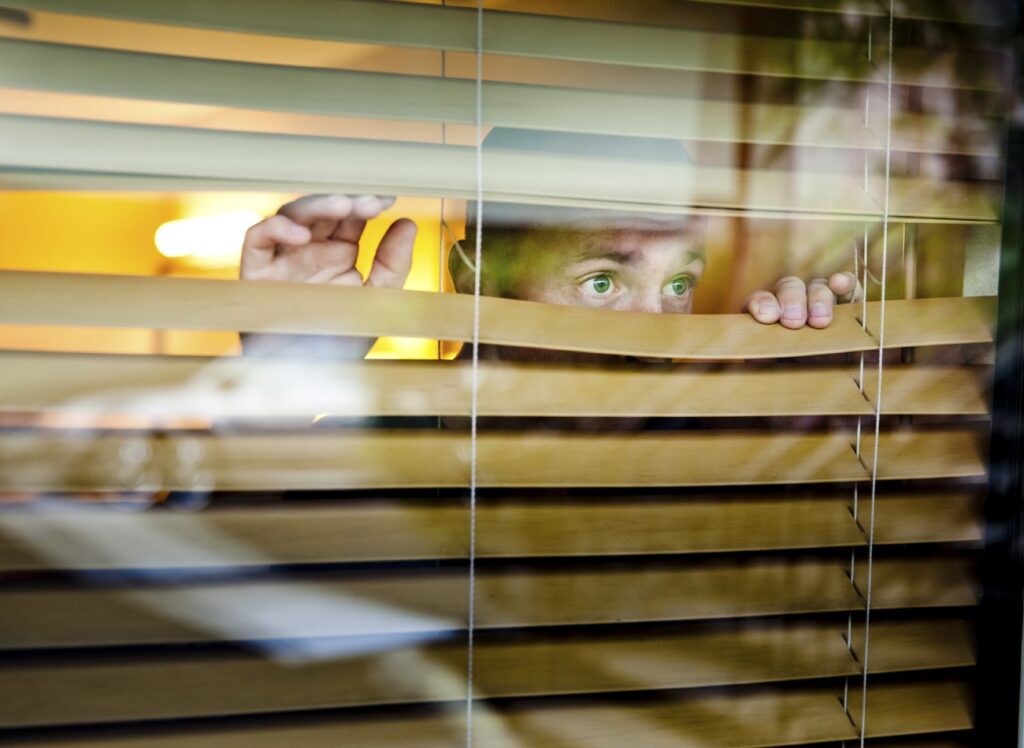There's so much rich insight coming out of the academic sector that HR professionals need to know. At Academics' Corner we feature the best HR researchers that tell you what they’ve found and what you need to do differently on the back of the research. Get connected to the academic sector through Academics’ Corner and make sure you never miss another piece of key research again. If you’re an academic with a relevant story, please get in touch on academicscorner@hrzone.com.
Every office has one. He is the guy you dread being left alone with in the break room; the guy with whom an awkward one minute conversation seems to last an hour; the guy who hovers at the edge of the group during happy hour with a mysterious smile engraved on his face.
He doggedly (and unsuccessfully) asks his female coworkers out to lunch, and he may work in IT. Even though you know very little about his private life, you just know that he engages in peculiar hobbies like taxidermy or collecting something. I am of course talking about the office “creep,” and the office creep is almost always a man rather than a woman.
If you are having trouble thinking of who the creep is at your workplace, it probably means that you are the guy.
What exactly is it that makes some people seem so creepy?
I recently did a study in which I tried to unearth the building blocks of this thing we call Creepiness. In an online survey, 1,341 people weighed in on a range of behaviors and characteristics that I thought might be important, and a paper based upon this study, co-authored with Sara Koehnke (one of my students), recently appeared in New Ideas in Psychology.
Everything we found was consistent with the idea that getting “creeped out” is an unpleasant emotional experience that occurs in situations where there is an ambiguity about threat.
It is not the same thing as fear or disgust, as these emotions result from confronting threats that are very clear to us. Rather, we find ourselves presented with confusing signals from an individual that leave us at a loss to know for sure what is going on.
Ambiguously-threatening places and ambiguously-threatening people are equally likely to creep us out.
The person is behaving in ways that make him unpredictable. Maybe he laughs too hard or at inappropriate times. Perhaps he stands too close to you, licks his lips a bit too frequently while speaking, or the eye contact is inappropriately intimate or distant.
Does he keep steering the conversation in the direction of sex or other topics that seem ill suited to the setting?
If the person has unusual or unpleasant prominent physical characteristics, the impression of creepiness can be magnified.
It would be considered rude or embarrassing to scream and run away from this odd person who has done nothing overtly threatening, but, on the other hand, it could be perilous to ignore your intuition and get more deeply involved in an interaction that could lead to danger. After all, if the person is clueless about the mundane rules of normal human interaction, what other rules might he be willing to violate? This ambivalence leaves you frozen in place, wallowing in unease.
Our “creep detectors” activate in situations like this to help us maintain a state of hyper-vigilance to help us figure out if there is in fact anything to fear or not. Being creeped out can be mentally exhausting because it uses a lot of our available cognitive processing capacity.
Why do we have a 'creepiness detector?'
Creepiness detectors evolved to protect us from harm at the hands of predators and enemies. If you are walking down a city street late at night and hear the sound of something moving in the dark alley to your right, you will respond with a heightened level of arousal and sharply focused attention and behave as if there is a creepy-crawler present who is about to do you harm.
If it turns out that it is just a stray cat or a gust of wind, you have lost little by overreacting. On the other hand, if you fail to activate the alarm response when there really is something bad lurking there, the cost of your miscalculation might be quite high.
Creepiness detectors evolved to protect us from harm at the hands of predators and enemies.
Thus, humans have evolved to err on the side of caution in ambiguous situations, and ambiguously-threatening places and ambiguously-threatening people are equally likely to creep us out. Better to be safe than sorry.
Our research confirmed that we do indeed think that creepy people are more likely to be men than women, and women are especially likely to fear that a creepy guy may pose some sort of sexual threat. Our survey participants did not necessarily infer bad intentions on the part of people who are creepy, although they worried that they may be dangerous nonetheless.
Most of our participants also believed that creepy people cannot change, and only 8.6% of our responders believed that creepy people are aware that they are creepy.
Human resources professionals are the zookeepers of the corporation. They are responsible for the care and feeding of the inhabitants of each of the ecological niches in the landscape, and they must understand the entire cast of characters: the office busybody, the office bully, the office mom, the office grouch, and yes, the office creep.
Our research confirmed that we do indeed think that creepy people are more likely to be men than women.
The office creep may need an extra dose of nurturing. He is probably a well-intentioned but clueless individual who is unable to grasp why he always seems to be operating on the fringes of group life. Such individuals may need more guidance when it comes to understanding the unwritten rules of the workplace such as dress codes, appropriate topics for conversation, and the policy about bringing reptiles into the office.
This, of course, can become especially awkward when the HR person is the office creep…







2 responses
I think you just described at
I think you just described at least 75% of my friends. Individually brilliant, quirky (not rich enough to be ‘eccentric’…), not too concerned with the opinions of the mundanes, probably fall somewhere on the autism spectrum. None of them watch much TV, or follow sports, which blanks out so many casual conversations with people who do.
“He doggedly (and unsuccessfully) asks his female coworkers out to lunch, and he may work in IT. Even though you know very little about his private life, you just know that he engages in peculiar hobbies like taxidermy or collecting something.”
What a nasty, snide, vicious statement. Apparently now ‘collecting something’ qualifies as a ‘peculiar’ hobby. And when did ‘lacking social graces’ become ‘creep’? Yes, this may well be someone who doesn’t have many female friends, and doesn’t socialise very well – in what way does this make them a bad person; someone who you should be afraid of? Yes, a lot of geeks end up in IT – it is the perfect career for people with excellent problem-solving skills but who maybe aren’t so hot on the personal skills. These are the same skills that many HR people take for granted because practically everyone they work with has the same core skillset, but couldn’t compose a bit of SQL to save their life.
“The person is behaving in ways that make him unpredictable. Maybe he laughs too hard or at inappropriate times. Perhaps he stands too close to you, licks his lips a bit too frequently while speaking, or the eye contact is inappropriately intimate or distant.”
Maybe some people need to man up and deal with the fact that we’re not all perfect little androids in the workplace. Some people don’t like making eye contact. Some people have been told to make eye contact, but don’t realise that that doesn’t mean a fixed unblinking stare. Some people’s sense of humour is wired very differently from everybody else. These people were smart enough to get hired in the first place, and good enough to get through the interview. Nothing you’re describing there is incurable, or unendurable. Might need a slightly more empathetic manager to have a chat about personal space, or body language, but we’re not really off the charts here.
Also, do you not employ adults who can have these conversations for themselves?
“Hi, thanks for staying back after the meeting. I just wanted to say that I find it difficult to deal with you when you don’t look at me as we’re talking. How can I help you do this to improve our communication?”
How hard is that?
This article reeks of condescension and fear. We’re not allowed to pick on people because of their gender, their sexuality or their ethnicity, so let’s find a new group we can all pick on safely. Ooh, look, the weirdoes from IT – nobody likes them, right?
Utterly repellent.
Hi Frank, generally I am
Hi Frank, generally I am fairly agnostic about these kinds of thought pieces or updates on research but I really felt uncomfortable with this article and feel the need to comment. Why? There are always people who are different and I remember at school that sometimes those people were bullied or ostracised by the group because they were a bit ‘creepy’. The concept of a ‘creep’ is pretty derogatory and may reflect an individuals lack of social skills, emotional intelligence or maybe they are some where on an autism/aspergers scale. Who knows? Their difference or lack of self awareness maybe linked to the way that they were brought up and socialised within their family. It could be a mental health issue. Whatever it is, labelling people who are not as socially adept as us a ‘creep’ can play into a rather nasty side of our own nature, which may be designed from our evolutionary past to be suspicious of difference, rather than try to understand and work with that difference. Recent cases of ‘creepy’ but innocent men being beaten to death for being alleged child molesters is an extreme case of where people can go when they channel their fears/anxieties and jump to conclusions about men who seem a bit ‘creepy’. Your focus on males is also interesting (I understand your research indicated the label was more common in referring to males) but women who were different during the middle ages were labelled as witches with equally unfortunate results (Salem Witch trials for example) which reflect a similar human reaction to people who are different. After all of the research your advice seemed a bit limp. I realise that the article is a little light hearted but if all you can say is that these people may need a bit of nurturing – what was the point of the article? It might have been more helpful to explore our reactions, our tendency to label and to project our fears onto people who are often quite innocent with negative consequences for those people, Best Chris